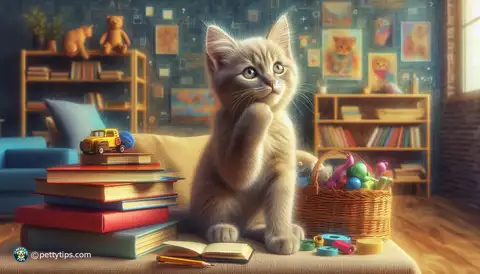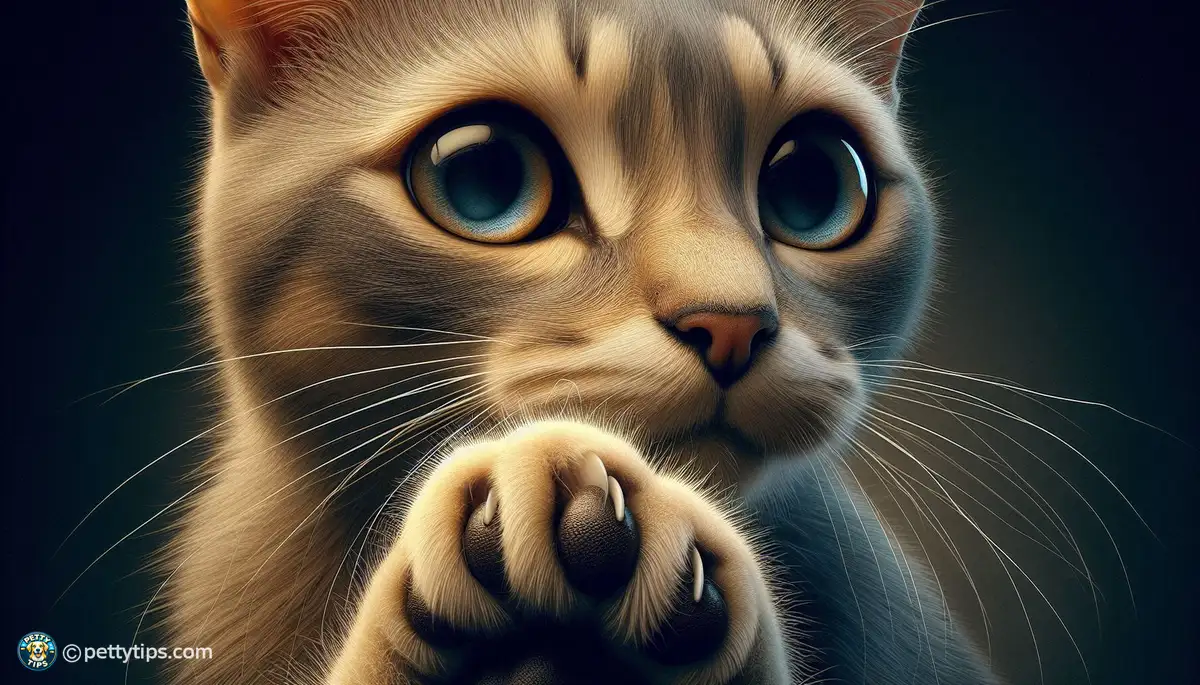
Unveiling the Influence of Parenting Style on Cat Intelligence
Dorothy Roller - Aug 26, 2024 - 6 min read


Scratching is often dismissed as a mere feline behavior, but it runs far deeper than that. For cats, scratching is an instinctual behavior deeply rooted in their hunting ancestry. While it may seem like they're simply sharpening their claws or marking territory, scratching serves a crucial purpose in maintaining their physical and mental well-being.
First and foremost, scratching helps cats shed the outer layer of their claws, keeping them sharp and ready for action. In the wild, sharp claws are essential tools for catching prey and defending against predators. By engaging in regular scratching, domestic cats mimic the natural wear and tear their claws would undergo in a wild environment. Additionally, scratching allows cats to stretch their muscles and maintain flexibility, which are vital skills for successful hunting.
The hunting instinct is deeply ingrained in every cat, regardless of whether they're a pampered house cat or a wild feline roaming the savannah. It's a behavior that transcends domestication, reflecting the evolutionary heritage of these majestic creatures. Even the most domesticated cat retains the primal urge to stalk, chase, and capture prey. This instinctual drive fuels their behavior and influences many aspects of their daily lives.
When a cat scratches, it's not just a mindless action—it's a manifestation of their innate hunting instincts. In the wild, scratching serves multiple purposes beyond maintaining claw health. It allows cats to mark their territory with both visual and olfactory cues, warning potential intruders and asserting dominance over their domain. This territorial marking is a crucial aspect of hunting behavior, as it helps cats establish and defend their hunting grounds from competitors.
In the domestic setting, scratching may seem disconnected from the act of hunting, but the two behaviors are intricately linked. While indoor cats may not have the opportunity to engage in traditional hunting activities, scratching provides a way for them to express and satisfy their primal instincts in a controlled environment.
By providing appropriate scratching surfaces and toys, pet owners can help channel their cat's hunting instincts in a constructive manner. interactive toys that simulate prey-like movements can trigger a cat's predatory instincts and provide mental stimulation. Additionally, scratching posts and pads offer cats a designated outlet for expressing their natural scratching behavior, reducing the likelihood of destructive scratching on furniture or carpet.
At the core of both scratching and hunting behaviors lies the thrill of the chase. For cats, stalking, pouncing, and capturing prey fulfill more than just their physical needs—it satisfies a deep-seated psychological urge. The anticipation of the hunt, the adrenaline rush of the chase, and the satisfaction of a successful capture tap into their primal instincts and provide a sense of fulfillment.
From a psychological standpoint, the act of scratching shares similarities with hunting behavior. Both activities offer cats a sense of control and mastery over their environment. When a cat scratches, they engage multiple senses, from the tactile sensation of digging their claws into a surface to the auditory feedback of the scratching sound. This sensory experience triggers pleasure centers in the brain, reinforcing the behavior and encouraging repetition.
In the confined space of a human home, cats rely on their owners to provide opportunities for mental and physical stimulation. environmental enrichment plays a crucial role in fulfilling their hunting instincts and promoting overall well-being. By creating an environment that mimics aspects of their natural habitat, pet owners can help satisfy their cat's innate need for exploration and stimulation.
interactive play sessions, puzzle feeders, and vertical spaces for climbing and perching are all valuable tools for enriching a cat's environment and stimulating their hunting instincts. These activities not only provide physical exercise but also engage their minds and encourage problem-solving skills. By incorporating elements of unpredictability and challenge into their daily routine, pet owners can ensure that their cats lead fulfilling and enriched lives.
When addressing unwanted scratching behavior, it's essential to approach training with patience and understanding. Punishment-based methods such as yelling or spraying water may temporarily suppress scratching but can damage the bond between a cat and their owner. Instead, focus on redirecting their behavior towards appropriate scratching surfaces and rewarding them for using them.
positive reinforcement techniques, such as clicker training or treats, can effectively encourage cats to scratch in designated areas. By associating the desired behavior with a positive outcome, cats learn to seek out scratching posts and pads as preferred alternatives to furniture or carpet. Consistency and repetition are key to success, as cats thrive on routine and clear boundaries.
In conclusion, the relationship between scratching and hunting instincts runs deep within the psyche of every cat. By understanding and honoring these innate behaviors, pet owners can provide a fulfilling and enriching environment for their feline companions. From providing appropriate scratching surfaces to engaging in interactive play sessions, there are numerous ways to channel their hunting instincts in a positive and constructive manner. By embracing their natural instincts and nurturing their innate behaviors, we can strengthen the bond between humans and cats and ensure their overall well-being and happiness.